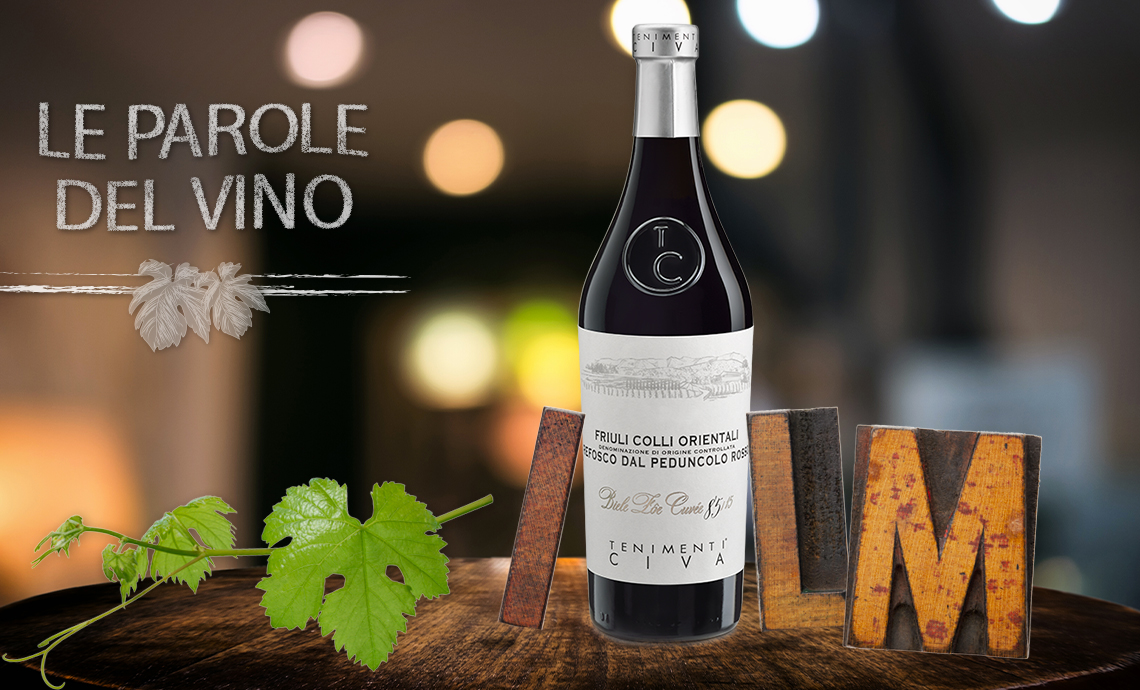 WORD “I”
WORD “I”
Immature: describes a wine that has not yet achieved its peak in terms of aroma, flavour and taste.
Intense: an adjective that may refer to the colour, aroma and/or flavour of a wine.
 WORD “L”
WORD “L”
Lacklustre: denotes a wine whose sensory characteristics display a loss of energy. This may happen due to mistakes made in vinification and ageing.
Lean: a lean wine is one that lacks structure, and shows little or no length on the palate.
Leesy: refers to an aroma and taste of lees, caused by a long period spent on the latter; may be a negative trait.
Light/Lightweight: describes a wine with a low alcohol content.
Limpid : describes a wine without any insoluble particles in suspension.
Liqueur-sweet: used to describe wines whose structure, alcoholic strength, and often sweetness, show traits typical of liqueurs. The adjective also refers to fortified wines (e.g. Marsala) obtained from a production technique that envisages the addition of alcohol, grape spirit or must (cooked, concentrated or partially fermented) or a combination of the above, with the aim of increasing alcoholic strength and endowing character.
Lively: denotes a refreshing, approachable wine
Long: describes a wine whose aromas and flavours remain on the nose and/or palate long after swallowing.
Lusty: used to describe a vigorous, generous wine with verve.
 WORD “M”
WORD “M”
Maderized: describes wine whose appearance and/or aroma and/or taste is reminiscent of Madeira. This may be a positive or negative trait depending on whether the wine is oxidative as a result of an intentional choice by the producer or has instead suffered from accidental oxidation.
Mature: used for wines that have reached the peak of their expressive potential.
Meaty: said of wines that give a pleasing sensation of fleshy density in the mouth.
Milky: descriptor used for wines that show creamy notes of soft cheese, butter, cream or yogurt.
Minerally: this is the most enigmatic and difficult quality to pin down. The term is often used to relate mineral notes to the quality of the wine. Wet stone, flint, pencil lead, gunpowder and earth are some of the terms used to describe minerality, but there is still no unanimous definition of exactly what this characteristic refers to, since the source of its perception is still somewhat unclear.
Mouldy: describes wine whose smell and/or flavour is reminiscent of mould; this is a negative trait.
Mouth-puckering: used to describe a wine which displays an unpleasant mouthfeel, and is harsh due to excessive acidity and tannins at the same time.
Maria Cristina Pugnetti
Communications and Marketing Responsable
Società Agricola Tenimenti Civa
Via Subida, 16
Bellazoia 33040 Povoletto (Udine) Italia
E-mail: mc.pugnetti@tenimenticiva.com
+39 366 912 7428
E-mail: info@tenimenticiva.com
tel: 0432 177 0382

